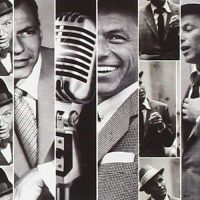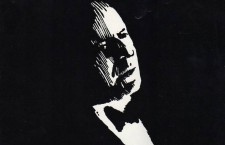Frank Sinatra’s 100th birthday today (Dec. 12, 2015) has garnered renewed attention on his unsurpassed style, stage presence and, of course, vocal technique.
The recent TV special Sinatra 100: An All-Star Grammy Concert featured peers such as Tony Bennett and today’s stars including Lady Gaga, Adam Levine and Carrie Underwood to pay tribute to the master. No other project may better capture the singer’s complex life than Sinatra: All or Nothing at All, the HBO documentary just released on DVD and Blu-ray. Although produced with the full cooperation of the Sinatra estate, the film presents a nuanced picture of the Chairman of the Board’s life and career.
All or Nothing at All guides viewers through Frank Sinatra’s transition from the son of Italian immi-grants in Hoboken, New Jersey to a swoon-worthy crooner and movie star. When his career stalled in the early 1950s, he pulled off one of the most remarkable comebacks in show biz history: he changed into a more aggressive, risk-taking singer who earned acclaim for movie roles in From Here to Eternity, The Man with the Golden Arm and The Manchurian Candidate. Along the way, he practically invented the concept album, reinvigorated Las Vegas, formed his own label, and even helped John F. Kennedy win the 1960 presidential election.
While Sinatra achieved these goals, he was far from perfect. All or Nothing at All addresses some of his faults, including his association with the mob, his womanizing, and his sometimes complex relationship with the Civil Rights movement. Sinatra protested Las Vegas hotels and casinos that would book African-American performers but would not allow them to stay in the same venue. In archival interview footage, friend Sammy Davis, Jr. credits Sinatra with not only helping his career, but also teaching him about salary negotiation.
However, Belafonte admits that he grew uncomfortable with the politically incorrect jokes hurled toward Davis during the Rat Pack concerts. During his interview for All or Nothing at All, Belafonte expresses his confusion at this dichotomous aspect of Frank Sinatra’s personality: While he advocated for African-American performers’ rights and once brought Martin Luther King to tears during his rendition of “Old Man River,” Sinatra joyfully joined in with the racially charged humor that became part of the Rat Pack’s raucous shows.
Director Alex Gibney (Going Clear) chooses to tell Sinatra’s story through archival footage as well as new interviews with Sinatra’s children, Tony Bennett, Quincy Jones, Mia Farrow, and Harry Belafonte. While a lack of a consistent narrator allows Frank Sinatra and his family and friends to lead viewers through this biography, it also leaves a sense of detachment. When Nancy, Tina, and Frank Sinatra Jr. describe their painful memories of Sinatra often being an absentee father, it would have added emotional depth to see their faces.
Ultimately, Frank Sinatra’s legacy remains his music, and All or Nothing at All does not neglect this fact. Actor Charlton Heston once said that “every song Frank Sinatra sings is like a four-minute movie,” while ex-wife Farrow said Sinatra told her “I can’t sing what I can’t feel.”
Even more than these anecdotes, footage from Sinatra’s 1971 retirement concert (he would come out of retirement only two years later) illustrates the power he held over an audience. As he performs “I’ve Got You Under My Skin,” he expertly manipulates the audience’s emotions by altering his pitch, volume, and intensity. Sinatra: All or Nothing at All may present the life of a complex individual, but it also showcases how his talent and vast influence will never be duplicated.
- How John Lennon Came Roaring Back on the Beatles’ White Album - November 22, 2023
- Five ‘With the Beatles’ Deep Cuts That Illustrate Their Lasting Debt to R&B - November 20, 2023
- Five Must-Hear Deep Cuts from the Beatles’ ‘Past Masters’ - March 7, 2023




